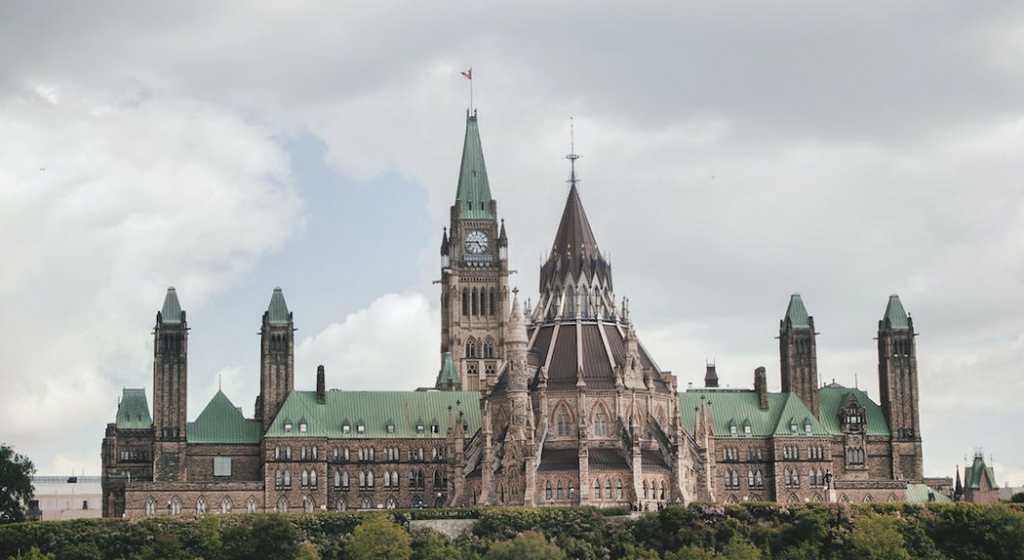Understanding Canada’s Culture Crisis
In the heart of Canada, a country renowned for its breathtaking landscapes and haven for multicultural communities, there lies an unfolding narrative that’s rarely told.
This article aims to understand those who leave Canada, such a prosperous and free nation on the world stage.

We all know Canada as a nation celebrated for it’s prosperity and freedom but lately there is worrying sense of some underlying issues contributing to an exodus among it’s own citizens.
That issue is Canada’s Culture Crisis.
In this article we will explore why some Canadians, nurtured in the very cradle of inclusivity and societal freedom, choose to pack their memories and dreams, and seek fulfillment beyond the Canadian shield.
From the bustling streets of Toronto to the serene landscapes of the Yukon, Canadian nationals are migrating in significant numbers, finding new homes in the United States, the United Kingdom, France, Italy, and beyond.
This phenomenon raises a profound question: What drives this disconnection and eventual departure from a country globally revered for its quality of life?
Let’s talk about it.
In contrast, Canada continues to witness a surge in population, largely due to immigration, marking its highest growth in decades.
This dichotomy is intriguing: while Canada remains a beacon for immigrants worldwide, some of its own people are drifting away, seeking what they perceive as missing in their native land.
The Allure of Canada for Immigrants
Before delving into the reasons behind the exodus of Canadians, it’s key we understand the attributes that make Canada a sought-after destination for immigrants.
These features not only paint a picture of a country rich in opportunities (although that’s debatable today) and cultural diversity but also set the stage for a deeper exploration into why, despite these attractions, a segment of the Canadian population feels disconnected.

Ease of Immigration: Canada’s immigration policies are known for their inclusivity, making it a safe haven for those seeking stability and a new beginning. The country’s approach to immigration is often seen as less stringent compared to other nations, offering a beacon of hope for many.
Humanitarian Leadership: As a country, Canada prides itself on its humanitarian efforts, particularly in resettling refugees. This leading role in offering refuge to those fleeing turmoil is a testament to its commitment to global responsibility and compassion.
Multicultural Mosaic: Canada’s vast multiculturalism is not just a buzzword but a reality. The country is a tapestry of diverse cultures, with people from every corner of the globe contributing to its rich cultural fabric. This diversity makes Canada an amiable and welcoming country for anyone, regardless of their background.
Strong Social Benefits: The social benefits provided by the Canadian government, including welfare programs and public services, are significant. These benefits offer a safety net that many immigrants might not have experienced in their home countries.
Healthcare Accessibility: While there have been debates about the efficacy of Canadian healthcare over time, it remains a robust system, especially compared to many other countries. The accessibility to advanced medical procedures and the assurance of healthcare being free are substantial draws for immigrants.
These five pillars underscore Canada’s attractiveness as a nation. They are the reasons why, year after year, individuals and families from across the globe choose to make Canada their new home.
Yet, this paints only one side of the picture.
Despite these seemingly ideal conditions, there is a growing sentiment of disconnect among some Canadians. This dissonance is not just a mere whisper in Canadian society but a loud echo resonating across its online and physical landscapes.
Let’s look at what our research has uncovered:
Unveiling the Disconnection: Why Some Canadians Choose to Leave
It’s time to put all your positive prejudices of Canada in your pocket. We’ve dug deep and found the following are the leading reasons behind Canada’s culture crisis and why natural and new Canadians are leaving the country.
1. Eroding Trust in Canadian Institutions
A contributing factor to Canada’s cultural crisis is the eroding trust in its institutions. Recent global trends indicate a growing skepticism towards traditional institutions, and Canada is not immune to this.
The 2024 Edelman Trust Barometer highlights a paradox where rapid innovation, while promising prosperity, also exacerbates trust issues, leading to societal instability and political polarization.
This decline in trust is not limited to Canada but is a global trend affecting many developed countries – most notably the US.
In such an environment, Canadians are increasingly questioning the integrity of their institutions, ranging from governmental bodies to scientific organizations.

This skepticism is further fueled by concerns about the influence of big business on politics and other areas of innovation, contributing to the feeling of disconnect and the desire to seek more stable and trustworthy environments abroad.
This decline in trust is a crucial aspect of Canada’s culture crisis and disconnection from the country among Canadians. Coupled with other factors like high living and food costs and increasing crime, it paints a picture of a nation at a crossroads, where its citizens are re-evaluating their place within it and seeking fulfillment elsewhere.
2. A Missing Cultural Identity:
Canada’s rich multiculturalism, while a strength, sometimes leads to an identity crisis, particularly among second and third-generation Canadians. With so many different cultures brought into Canada, a singular cohesive identity is no where to be seen.
The search for the now missing Canadian identity can create discomfort, prompting a search for something similar such as national pride in other countries where they feel a stronger connection to the community and traditions.
3. Toxic Work-Life Imbalance: A Growing Concern in Canadian Society
In Canada, the concept of work-life balance has become increasingly vital, yet elusive for many. Despite the country’s efforts to promote flexible working patterns and accommodate a preference for remote work, a truly balanced lifestyle still remains a challenge.
The desire for a better work-life balance is so strong that 39% of Canadians would accept a pay cut to work fewer hours. This indicates a significant shift in priorities, where personal and family time is becoming more important than higher earnings.
However, the issue of work-life balance is not just about the number of hours worked; it’s about the quality of those hours and the impact on personal and family life.
The pressure to be always available and the blurring of boundaries between work and home life have contributed to what many describe as a ‘toxic’ work environment. This imbalance, fueled by economic pressures and societal expectations, has led some Canadians to seek opportunities in countries where they perceive a better quality of life, more time for personal activities, and a healthier work culture.
4. Over-taxation and a Decline in Civil Services:
In Canada, taxation has been a growing concern, especially in recent years. To understand the tax situation in Canada let’s look at the concept of Tax Freedom Day, as reported by the Fraser Institute.
Tax Freedom Day is the day when Canadians have earned enough income to cover their annual tax bill. In 2023, this day fell on June 19, indicating that for more than half the year, all income earned by the average Canadian family went towards taxes.
This was a slight improvement from 2022 when Tax Freedom Day was on June 20, but still represents a significant portion of the year dedicated to tax payments.
The Fraser Institute’s analysis in 2023 revealed that the average Canadian family paid 46.1% of its income in taxes. This percentage encompasses various taxes including income, payroll, health, sales, property, fuel, carbon, and other taxes.
Such a high tax burden not only affects Canadians’ disposable income but also their perception of the value they receive from government services. The idea that for nearly half the year, Canadians work to pay taxes before they can start earning for themselves, has led to increasing scrutiny of how tax dollars are utilized by the government.
Moreover, the concern isn’t just limited to the taxes paid currently. With the federal and provincial governments projecting substantial deficits, there are implications for future tax burdens as well. The concept of a Balanced Budget Tax Freedom Day, which would fall on June 27 in 2023, further extends the period Canadians would need to work just to pay taxes if governments were to cover all of their current expenditures with current taxation.
This increasing tax burden, coupled with concerns about the effectiveness and efficiency of government services, contributes to a sense of frustration among many Canadians. It feeds into the broader narrative of dissatisfaction with how Canadian institutions manage public resources and the growing inclination of some Canadians to seek more favorable economic conditions abroad.
5. High Cost of Living:
You’ve likely heard this before, but affordability on all fronts is a growing concern in Canada.
As reported in September 2022 by RBC, about 60% of household income is needed to cover home ownership costs. And for most renters, it’s higher on a single salary. This financial pressure, coupled with long commutes for those seeking more affordable housing, has affected the work-life balance and cost of living of many Canadians.
For many, the increased cost of living in Canada has become a juggling act, balancing multiple jobs and many still are struggling to save enough for the future. The financial strain, often exacerbated by expenses that can surpass a family’s income, has led some to seek more affordable living conditions abroad.
The Personal Touch: Canadians Finding Fulfillment Abroad
The story of Canada’s cultural crisis is best understood through the personal experiences of those who sought fulfillment beyond its borders:
- Anna Haines, a journalist originally from Toronto, now relishes life in New York City. She appreciates the friendliness she encounters in the U.S., the diverse pop culture, and the more affordable cell service, aspects that she found lacking in Canada.
- Hannah Peter, from Ontario, embraced her study period in Germany as a transformative experience. Learning about German culture, forming new friendships, and the ability to travel across Europe affordably enriched her life in ways she hadn’t experienced in Canada.
These stories are a microcosm of a broader phenomenon. Many Canadians, facing challenges like high living costs and a sense of cultural misalignment at home, find a more fulfilling existence abroad. The diversity of experiences – from language and food to social values and customs – serves as a powerful draw, offering a sense of enhancement and self-actualization that transcends national boundaries.
Concluding Thoughts: A Journey of Discovery
In conclusion, the cultural journey of Canadians moving abroad is not merely an exodus; it is a new narrative of adaptation.
It reflects a quest for personal and cultural fulfillment that is not being met at home, no matter the comforts.
Furthermore, Canada’s culture crisis is part of a larger, global narrative, that is spreading accross the western world.
So remember, if you’re looking to start a life outside of Canada, you’re not the only one. It’s best to get professional guidance on exit journey. Regardless, a great place to start your journey out of Canada is our Leaving Canada Quiz! Where we will match you to a Canadian friendly destination based on your preferences. Check it out here:
Looking to leave Canada?
Take the country quiz to see where you belong!

Leave a Reply